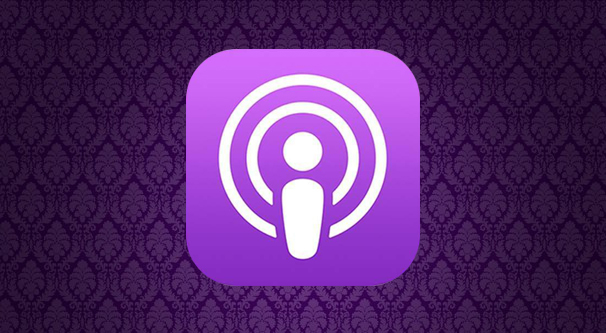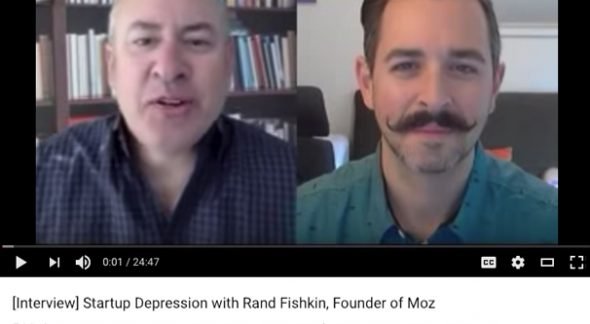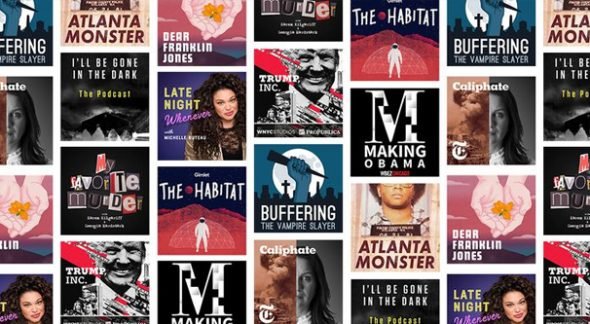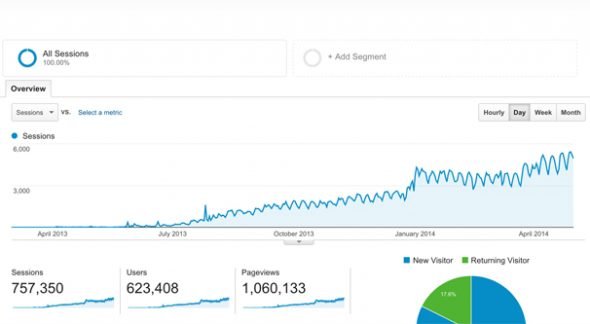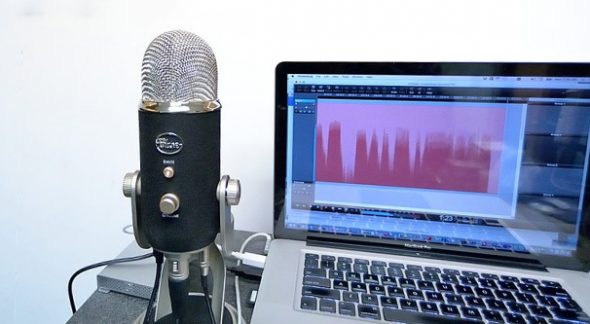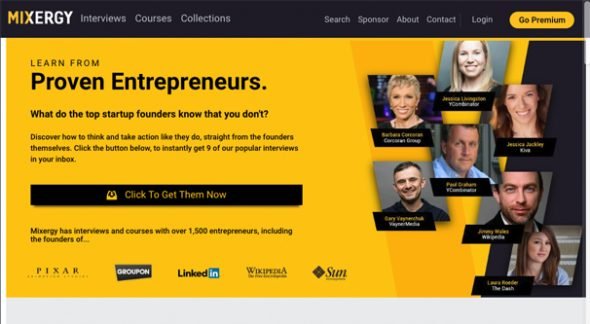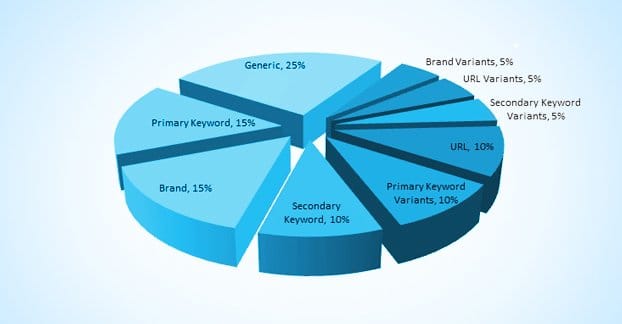I have spent quite a while now harping on the benefits of a guest posting strategy, but sometimes I feel like I’m missing a crucial element of my audience.
See, a lot of what I write is aimed at convincing you that guest posting is a good idea, and giving you the information you need to go out and get started. I provide techniques, information, ideas, and even specific guides for some sites.
That’s fine, that’s great, but that only applies to you readers who are either on the fence or looking for a place to start.
It means I’m ignoring the segment of my audience that knows how good guest posting can be, knows all the benefits, and knows how to do it. In fact, many of you already have a guest posting strategy. Heck, I’ve been writing this blog long enough that people I initially convinced are probably well on their way by now.
So, for those of you who already do guest posting, today I’d like to talk about an alternative. A supplement. An additional marketing stream. Guest Podcasting.
Guest posting is great, but it works best in two scenarios. In one, you’re already a prominent industry leader, and you’re using the guest posting platform to spread novel ideas or explore topics you don’t normally get the chance to explore in your native blog. In the other, you’re a small brand and you’re using progressively broader platforms to expand your own influence.
Those are great, but there’s a lot of space between “small brand” and “industry thought leader.”
Somewhere in the middle, you might find that guest posting isn’t doing everything you want it to do. You might be running low on high quality, authoritative sites that will give you the time of day. You aren’t capturing a ton of new attention, because within your industry, there’s a lot of crossover between the readerships of various sites.
A good blogging strategy and a consistent guest posting strategy go hand in hand, but at a certain point, you end up hitting diminishing returns. It’s the 80/20 concept all over again, right? 20% of your guest posts bring in 80% of your results. Pushing more and more guest posts will have less and less effect. You’re better off spending that time and energy on another, more novel form of marketing.
What is Guest Podcasting
Podcasts, if you’re not sure about them, are basically just internet radio shows. It’s another example of history repeating itself. Back when radio was a novel form of media and the only alternatives were magazines and newspapers, the art of audio was elevated.
When television hit the scene, it killed the radio star. Well, it didn’t actually kill radio, of course. It just changed the game. TV was the next big thing, and productions on television could offer so much more than radio could. But radio didn’t die, it still exists, in its own way.
The Internet in some ways mirrors the real world. Instead of developing internet radio first, though, we jumped right to TV. Sites offering music existed, but talk radio, radio shows, and so forth never hit the Internet in any major way. Who needs the equivalent of a production of The Shadow when you have YouTube?
Podcasts hit the scene more as just a catchy name for an internet radio show. The idea, of course, was that you could download one and put it on your iPod – remember those? – and take it with you on the go. Apple’s pseudo-branding helped a lot to make podcasts into a codified phenomenon, and they’re growing.
These days, plenty of people are willing to listen to podcasts. You have regular podcast shows from a wide variety of random people, from nobodies to celebrities. You have one-off podcasts or short series’ that explore certain topics. And, of course, you have marketing podcasts flooding the distribution networks as brands try to make the most of this “new” media format.
Now, a lot of different brands have tried to build podcasts and have, well, failed. The last few years are littered with the debris of failed podcasts. After all, they take a lot of time and skill to produce and execute on a regular basis. It’s not like writing a blog post, where you can bang out a new post in an hour or two. Making, mixing and mastering a podcast can be an all-day affair, if not longer, depending on your skill with audio.
That’s why I’m not going to even begin to recommend that you create a podcast. You can try it if you like, but do it because you’re talented with audio and passionate about your topic, not because you can fake those qualities in your marketing.
Plus, podcasting can be pretty expensive. There are a whole range of associated fees depending on how you put together a podcast, with this as an example. When you guest, though, all you need to do is show up and be capable of talking about your topic in a conversational way.
What I recommend is specific guest podcasting. It’s like guest posting: you find podcasts in your niche and you approach the creators, offering to guest on an episode if they have a topic relevant to your areas of expertise. It’s like an interview, in New Internet Radio form.
The Benefits of Guest Podcasting
The primary benefit of digging into guest podcasting is the ability to access a mostly new audience. Yes, a good chunk of your existing readers are probably listening to industry podcasts, but a lot of the people listening to podcasts are doing it because the podcast is interesting, not because they’re following a particular brand or personality.
Podcasts have one major benefit over virtually every other form of media: they can be experienced virtually anywhere. You can listen to a podcast on your drive to work, on your phone while you’re at the gym, or in the cafeteria for lunch. You can listen in the background on your computer while you’re working, or in your leisure time at home. Blog posts require you to be able to see and read, which requires your attention. Videos generally require you to watch as well, and those that don’t are basically podcasts with some additional imagery.
According to relatively recent studies (from 2017), 4 in 10, or 40% of Americans listen to podcasts. That’s a large potential audience, though the number is a little deceptive. It’s a recording of people who have ever listened to a podcast, not people who actively listen to podcasts. Also, podcasts are a large and varied industry. There are plenty of people who listen to podcasts regularly, but they only listen to comedy podcasts like My Brother, My Brother and Me, or surrealist creative works like Welcome to Night Vale. You’re not going to be able to guest on those kinds of podcasts outside of extreme circumstances.
Podcast audiences do, however, tend to be very dedicated. They like the show, the hosts, or the topic, and they keep coming back. It’s like a TV show audience tuning in week after week. They don’t need to be cajoled or prompted to return, like they do with a blog. You don’t need to pay for ads just to reach your own audience.
Guest podcasting has other benefits as well. For one thing, you build more trust. There’s a tangible, visceral difference between reading the advice someone writes and hearing them talk about that advice. Someone who can talk smoothly about their topic is going to appear more knowledgeable.
Of course, being a smooth talker is an entirely different skill than being a good writer. It takes some practice and a solid working knowledge of your topic, and preparation can help a lot. That’s why you’re guesting on podcasts, rather than creating one of your own.
Another podcasting benefit is that the owners of the podcast will do some promotion of their show. It might be on their Facebook page, it might be on Twitter, it might be who knows where else. They’ll tag you and mention you and link to you as the authority they’re bringing on. Sound familiar? Those are all guest posting benefits, but they’re coming from an entirely new angle.
It’s to their benefit, because they’re trying to attract your audience to listen to their show, and it’s to your benefit because they’re promoting you to their audience. It’s a win/win all around.
What kind of audiences are we talking about, though? If you’ve never heard of podcasting before, it’s easy to assume they’re sitting pretty at a few dozen subscribers, barely enough for a mid-sized business to care about.
- Mixergy is an entrepreneurship podcast with a wide range of popular entrepreneurs on for interviews, and has 42,000 followers on Twitter.
- Social Media Examiner has their own social media marketing podcast, and they have a fairly significant audience as one of the larger names in the business.
- OkDork produces Noah Kagan Presents, and Noah has 61,000 Twitter followers and a brand boasting over 700K mailing list subscribers. He IS the chief over at AppSumo, after all.
These are some reasonably significant audiences, particularly for small businesses in marketing. Every industry has their own big names, and many of them have podcasts. There are also big names in podcasts that might not have a blog presence, but nevertheless built up their subscribers on sites like iTunes and Spotify.
How to Get into Guest Podcasting
If I’ve convinced you to give guest podcasting a shot, you probably want to know how to do it. Luckily for you, the process is relatively simple. It’s also very similar to guest posting, except you can ignore some elements of blogging entirely.
The one major thing you need to care about that you don’t with guest posting is audio quality. I highly recommend, if you’re going to do more than one or two podcast experiments, that you invest in a good quality microphone and some audio processing software.
One quality all of the best podcasts share is high production values in audio quality. Everyone sounds rich and bassy, there’s no fuzz to the audio, and it’s about as far from a “recorded screenshare of a Skype call” as possible. You don’t need to be an audio wizard, but having a good mic, a space to record free of background noise and echo, and some basic noise gates, filters, and compression can go a long way towards getting you on podcasts.
Generally when you participate in a podcast, you’ll be participating in a group call, usually through a VoiP service. You’ll also be recording your own call locally, with just your input, so you can send a cleaner recording to the podcast host for their editing. This isn’t always the case – every podcast has their own process they’ve developed – but it’s good to be able to offer this capability. The more convenient you can be for the host, the more likely you are to get on the show.
Investing in high quality audio isn’t necessarily expensive, but it isn’t free. A good mic might cost you a couple hundred bucks, and you’ll have to take the time to learn and set up some software, even if you’re just using free apps.
On the other hand, as a guest on a podcast, you don’t have to worry about writing full blog posts, or even really doing much preparation at all. As long as you Know Your Shit, all you’ll have to do is review some questions, suggest some topics, and work with the podcast host to make something fluid. You don’t need to care about keyword research or optimization or link positioning and anchoring, or any of those other details most relevant to guest posting. None of that matters with audio.
As for the actual process, well, you have to find relevant podcasts in your niche. You can Google for “<topic> podcasts” to find top lists like this one, and spin off from there. You can also do searches on iTunes, Spotify, Overcast, and other Podcast Networks. Find podcasts, then figure out how to contact the hosts. That’s basically the same as trying to find how to contact any editor of any site.
From there, just write your pitch. Shoot the podcast host a message, explain who you are and that you’re interested on guesting on their show, if they have a spot. Some podcasts might have a dedicated form to submit contact requests, while others will be a lot more free-form and casual about it. Just play it by ear; nothing is as codified in podcasting as it is in guest posting.
Good luck!
 ContentPowered.com
ContentPowered.com
